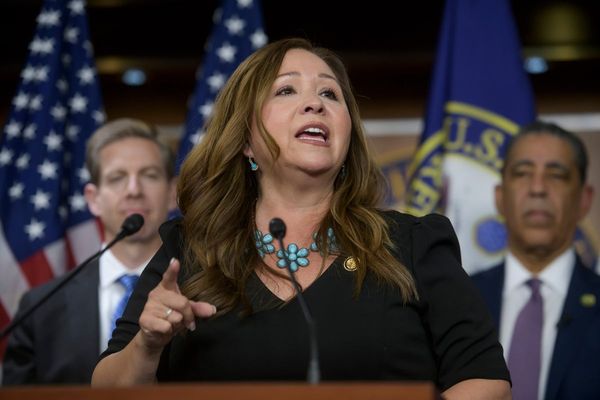
Delegates from around the world are gathering in Geneva for a critical round of negotiations aimed at securing the first global treaty to curb the mounting plastic pollution crisis.
Negotiators from almost 180 countries are to gather in the Swiss city on Tuesday for another round of United Nations-backed talks, aimed at forging the first legally binding treaty on plastic pollution – after previous attempts failed to reach a consensus.
Over the following 10 days, international stakeholders will attempt to resolve more than 300 outstanding points in a draft treaty, ranging from production caps to chemical restrictions.
Global plastic pollution talks extended after nations fail to reach crucial deal
Plastic pollution has become so widespread that microplastics are now found on the highest mountains, in the deepest ocean trenches – and throughout the human body, including in blood and organs.
Ahead of the talks, a new report published in British medical journal The Lancet warned that plastic pollution poses a “grave, growing and under-recognised danger” to human health, with estimated global costs exceeding $1.5 trillion annually.
Comparing the harm done by plastic to that of air pollution and lead, the review calls for urgent legislative action.
Philip Landrigan, a doctor and researcher at Boston College, stressed the disproportionate impact on vulnerable groups, especially children.
“It is incumbent on us to act,” he said in a statement. “To those meeting in Geneva: please take up the challenge and the opportunity of finding the common ground that will enable meaningful and effective international cooperation in response to this global crisis.”
Oil industry lobbies
The road to Geneva has not been smooth, as talks held last December in Busan, South Korea, ended in deadlock, largely due to a fundamental rift between nations advocating for binding limits on plastic production and mostly oil-producing countries who pushed instead for solutions such as improved waste management.
Environmental advocates are urging negotiators not to shy away from tough decisions. "Governments must act in the interest of people, not polluters," said Greenpeace’s Graham Forbes, who also expressed concern over the strong presence of industry lobbyists at the talks.
Meanwhile, Ilane Seid of the Alliance of Small Island States (AOSIS) reiterated that a meaningful treaty must tackle the entire life cycle of plastics – including production.
According to the OECD, if no action is taken global plastic consumption could triple by 2060. Currently 460 million tonnes of plastic are produced each year – half of it single-use – and less than 10 percent of that is recycled.
At UN ocean summit, 95 countries back ‘wake-up call’ to cap plastic production
Cautious optimism
The United Nations Environment Programme (UNEP), which is overseeing the talks, warns that plastic waste in soils and waterways could rise by 50 percent by 2040 if current trends continue.
Still, there is cautious optimism. UNEP executive director Inger Andersen believes a treaty is within reach. “Despite the complexity and the brackets in the text – over 300 of them – it’s very possible to leave Geneva with a treaty,” she said.
Yet, the final shape of that treaty remains uncertain. Bjorn Beeler of the IPEN network, which campaigns against toxic chemicals, notes that negotiators are under pressure to avoid another inconclusive round.
Land pollution is drowning the oceans in plastic, French experts warn
"The escape hatch is most likely a skeleton that’s going to be called a treaty,” he said, “but it needs finance, guts and a soul to be actually something effective.”
The talks are taking place against a backdrop of shifting global politics, including scepticism over multilateral agreements from major powers such as the United States, under the Trump administration.
Nevertheless, a growing coalition is pushing for ambition. At the UN Oceans Conference in Nice in June, 95 countries – including the European Union member states, Mexico and Senegal – called for a treaty that includes production reduction targets.
(with newswires)







